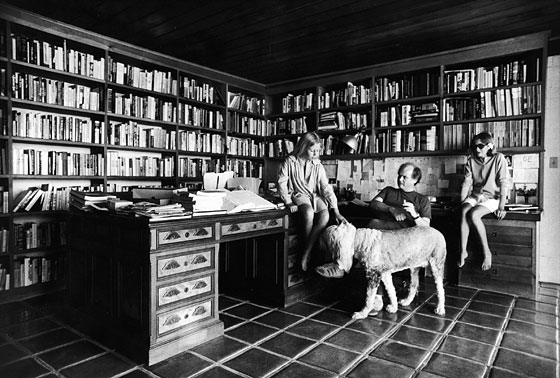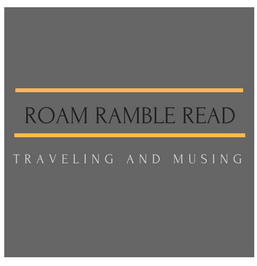
Bookbabes, I will truly miss the thoughtful discussion of this book.
High school in the 60’s for me was living in Japan on an Army base. The base was the last stop on an hour bus ride and five stops from the base where I went to high school. Once I got home most of my close friends had gotten off four stops ahead of me.
I was an only child in a home with no television, a record player and a radio tuned to the Armed Forces radio station. I remember the station played the top 20 hits from the states every week day sometime after I arrived home from school. I had plenty to do after school before I boarded the bus home–Student Council, yearbook, and hanging out in general. Once I got home from school, though, I had time for solitude, deep dark psychological novels, and time to pursue momentary passions.
First, I bought a guitar. It was the 60’s–everyone was playing a guitar and strumming the chords to my favorite song: House of the Rising Sun. I taught myself to play—as in engaging in an activity for enjoyment and recreation–musical prodigy I was not and YouTube wasn’t around.
Second, I bought oil paints and canvases. How hard can it be to paint a cubist painting? Picasso I was not. Matter of fact, it wasn’t until I read Strapless: John Singer Sargent and the Fall of Madame X a few years ago that I could even imagine the years of study preceding a cubist painting.
Third time a charm? I bought fancy journals and mechanical pencils to write. I poured out my teenage angst in short bittersweet poems and mounted them with pressed flowers and remembrances of places visited with brief flings (I just threw that in for effect). Convinced I could write a Dostoevsky-type short story that delved into the human soul I started on page one with a train ride through Siberia in the winter (have to set the atmosphere) and ends on page two. Fyodor I was not. *I also had a brief fling with teaching myself Russian until somehow my French teacher found out and I found out he was a Russian major in college. Too much in common with a teacher and that cyrillic alphabet. Nyet to learning Russian.
How does this relate to the book?
I wrote this introduction before we left for Lodz, Poland. Now I’m wondering where I was going with my narrative.
We had a wonderful time visiting Grazyna Esch the wife of a high school friend who is in Poland visiting her mother…but then we almost missed our train back to Krakow because Uber didn’t show up and then we were locked out of our apartment when we arrived in Krakow because housekeeping locked a lock for which we have no key. I just don’t bounce back mentally and physically from stressful situations like anymore.
Anyway…if I was a writer I’d like to write like Joan Didion. I like her detail, her literary connections, her research, and her sentences and paragraphs. Through simple stories and details and repetition
I love you more than even one more day.
Life changes fast.
Life changes in the instant.
You sit down to dinner and life as you know it ends.
she captures her grief and personality and self-pity and lays it out bare for us to experience.
I read that Didion is a new journalist.
Briefly, the new journalism is a form of journalism that makes use of narrative and fictive
techniques and displays an obvious personal voice.
New journalism seeks to communicate facts through narrative storytelling and literary techniques. This style is also described as creative nonfiction, intimate journalism, or literary nonfiction
I also read that Didion never studied grammar. I think about the rules of grammar and when I break them I’m hoping someone doesn’t think of me as illiterate–like when I can’t pronounce words. 🙂
Just as I meant “shimmer” literally I mean “grammar” literally. Grammar is a
piano I play by ear, since I seem to have been out of school the year the rules were
mentioned. All I know about grammar is its infinite power. To shift the structure of a
sentence alters the meaning of that sentence, as definitely and inflexibly as the position of
a camera alters the meaning of the object photographed. Many people know about
camera angles now, but not so many know about sentences. The arrangement of the
words matters, and the arrangement you want can be found in the picture in your mind.
The picture dictates the arrangement. The picture dictates whether this will be a sentence
with or without clauses, a sentence that ends hard or a dying-fall sentence, long or short,
active or passive. The picture tells you how to arrange the words and the arrangement of
the words tells you, or tells me, what’s going on in the picture.
What a charmed life her and her husband had sharing their writing and hobnobbing with famous people. When described a church full of people for her husband’s funeral my anxiety went up….What if I died and no one came?
Some interesting things I found while “researching.” Ya all know I can’t read about without my love of trivial facts–still don’t know why I don’t do better on Jeopardy.
- Joan Didion’s nephew directed a documentary about Joan on Netflix last year. (We should get together and watch it when I get back.)
- After making progress toward recovery in 2004, Quintana died of acute pancreatitis on August 26, 2005, during Didion’s New York promotion for The Year of Magical Thinking. She was thirty-nine.

- Didion is heavily influenced by Ernest Hemingway, whose writing taught Didion the importance of the way sentences work within a text. Other influences include writer Henry James, who wrote “perfect, indirect, complicated sentences” and George Eliot.[27]
- Because of her belief that it is the media that tells us how to live, Joan Didion has become an observer of journalists themselves.[23] She believes that the difference between the process of fiction and nonfiction is the element of discovery that takes place in nonfiction. This happens not during the writing, but during the research.
- John Dunne’s father was a prominent heart surgeon.
- Vanessa Redgrave starred in the play based on the book.

Running out of time…thoughts on the book.
- Didion decides to work crossword puzzles and the clue, “Sometimes you feel like…” She comes up with “a motherless child,” but interestingly never references the southern spiritual “Sometimes I Feel Like a Motherless Child”–one of my favorites.
Sometimes I feel like a motherless child
Sometimes I feel like a motherless child
Sometimes I feel like a motherless child
A long way from home, a long way from homeSometimes I feel like I’m almost done
Sometimes I feel like I’m almost done
Sometimes I feel like I’m almost done
And a long, long way from home, a long way from homeTrue believer
True believer
A long, long way from home
A long, long way from home
- Didion writes about the first thing people think about when someone dies of a heart attack: Did they take care of themselves? Did they eat right? Did they exercise?
- In grief to some people companionship is a comfort, others shrink from their dearest friends.
- I was surprised when Quintana was urged to fly to LA from NY to recuperate.
- “Survivors loo back and see omens, messages they missed…They live by symbols.”
- “Was that what he experienced as he himself died?…A moment of terror as he realized the inevitable outcome of the accident, then an instant later the eternal dark?”
- “I kept saying to myself that I had been lucky all my life…what exactly did ‘luck’ have to do with it?”
- “Did mothers always try to press on their daughters the itineraries of which they themselves had dreamed?”
- “We’re not having any fun…The concept of service.”
- “you can love more than one person….but marriage is different…Marriage is not only time: it is also, paradoxically, the denial of time.”
- “Time is the school in which we learn,/Time is the fire in which we burn”
About The Author
admin
Related Posts
Bread Givers Review “On the One Hand…But On the Other Hand”
This review is written for my fellow bibliophiles “The Bookbabes” to add to…
April 9, 2018

The Days of Childhood
There are perhaps no days of our childhood we lived so fully as those we…
April 9, 2018

Rick Dye | 9th Apr 18
Chris—this sounds just like you..adventurous in thought, word and deed. Patti is an English major and loves to read mysteries. Are the bullet points at the end of this blog your thoughts or are they thoughts from the book? Love reading your thoughts and your memory of our high school years.. The Depot, got to love it!!!
admin | 12th Apr 18
The bullet points were my thoughts on the book–which isn’t a mystery. I did review a mystery am I am going to review a mystery series I’m reading now.